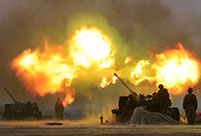 Top 100 beauties in the world!
Top 100 beauties in the world!
 Gallery: Who is the most beautiful one?
Gallery: Who is the most beautiful one?
 If you like autumn, put your hands in the air!
If you like autumn, put your hands in the air!
 Fan Bingbing's "Queen style" in new play
Fan Bingbing's "Queen style" in new play
 Lingerie show at 2014 Miss China
Lingerie show at 2014 Miss China
 J-10 fighters show aerobatic stunts in smog-free sky
J-10 fighters show aerobatic stunts in smog-free sky
 Charming contestants of Shanghai Int’l Model Contest
Charming contestants of Shanghai Int’l Model Contest
 Most amazing chi-pao beauties
Most amazing chi-pao beauties
 7 deadly animal attacks
Russia to launch 70 Proton rockets by 2020: official
7 deadly animal attacks
Russia to launch 70 Proton rockets by 2020: officialBEIJING, Nov. 17 -- As G20 leaders in Brisbane, Australia,pledged measures to boost their economies, Chinese President Xi Jinping shared China's recipe for the future: deepening reform.
In recent months, the world's second largest economy has seen weak economic data, adding to fears that it may be next in line to lose steam.
As a result, Xi told the G20, the Chinese economy would maintain powerful, sustainable and balanced growth, providing the world with more market, investment and growth opportunities.
The president's remarks continue on from comments made at the APEC Beijing summit, where he said "a 'new normal' of the economy has emerged", featuring slower growth but better structural reform.
"The world should prepare to say goodbye to the good old days of China, which for a long time helped drive the world economy, especially after the 2008 global recession," said Xin Ming, a professor from the Central Committee of the Communist Party of China's (CPC) Party School.
"But that may not necessarily be bad news, and President Xi is telling the world to have faith in the world's second largest economy and in its new normal state," said Xin.
New investment opportunities unleashed by the new normal in addition to quality-oriented economic policies, will help cushion the impact of a slower economy, said Wang Xiaoguang, a policy-making expert with the Chinese Academy of Governance.
Moreover, this new environment will be accompanied by easier market access and a more efficient market, through the continuation of lifted restrictions on the "invisible hand" of the market and the ensured proper role of the "visible hand" of the government, he said.
The term "new normal" was first mentioned by President Xi in May during an inspection tour in central China's Henan Province. He said at the time that China needed to adapt to a new normal and remain cool-headed as the brakes went on.
Obviously, it is an economic term, but many observers believe it means more than that.
"China's anti-corruption drive has not only squeezed out corrupt tigers and flies [high and low ranking officials], but also may help squash the undesirable work style of civil servants once and for all," said Xin.
He also cited China's efforts to establish the rule of law and "lock power in the cage" in legal areas as evidence of a broader new normal.
In an article published in October by the People's Daily, the CPC's flagship newspaper, the author, Shi Zhihong, predicted that many more of these new normal things will emerge, including the establishment of a major cultural power, improving people's livelihood, enhancing environment and building a strong national defense system.
Such new normality will have far-reaching implications, wrote the author.
"Party cadres and our fellow countrymen should learn to adapt to this new normal state, so should some multinational companies and foreign countries. They should realize China is serious about carrying out its anti-monopoly laws and defending national sovereignty and territorial integrity."
For some China watchers, such new normality carries many surprises: Chinese leaders can tolerate the lower GDP growth rate as they watch officials as high up as Zhou Yongkang -- member of the Standing Committee of the Political Bureau of the CPC Central Committee -- are felled.
"There are no traditions that can not be broken," Guan Qingyou, an economist with Minsheng Securities' research institute, wrote in the column "Understanding New Normal: China's political and economic trends."
While many China watchers have placed their emphasis on "what's new," Xin the party school professor said "normal" was more important.
Xin said that this new normal was a return to what it should have been.
 Hot girls at motor show
Hot girls at motor show  Official trailer of Y-20
Official trailer of Y-20 Photos: Xi Jinping in Fujian
Photos: Xi Jinping in Fujian Standard faces for each countries
Standard faces for each countries China-made military transport aircraft gets ready
China-made military transport aircraft gets ready World Pole Dance Championship in China
World Pole Dance Championship in China Shocking! Photos of Chinese fighters revealed
Shocking! Photos of Chinese fighters revealed 59-year-old Liu Xiaoqing still looks stunning
59-year-old Liu Xiaoqing still looks stunning  In pics: PLA stages live-fire drill in NE China
In pics: PLA stages live-fire drill in NE China  Top 10 most dangerous jobs in the world
Top 10 most dangerous jobs in the world  Top 10 fifth generation jet fighters in the world
Top 10 fifth generation jet fighters in the world Top 10 Chinese goddesses
Top 10 Chinese goddesses  Top 20 hottest women in the world in 2014
Top 20 hottest women in the world in 2014 Top 10 pure beauties in showbiz
Top 10 pure beauties in showbiz  Top 10 world's highest-paid models 2014
Top 10 world's highest-paid models 2014 The most gorgeous Chinese women
The most gorgeous Chinese women Top 10 most handsome faces in Asia
Top 10 most handsome faces in AsiaDay|Week|Month